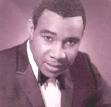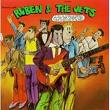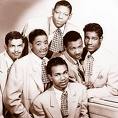They’ll Take You There
It was my good fortune to come across two Staple Singers LPs, on two different occasions, this week at Half Price Books. It got me listening again to this fine vocal group that I just hadn’t thought a lot about for awhile.
Their single “I’ll Take You There” has long been in my top-ten all-time singles list–maybe top-three. It’s a nice and simple groove tune written by Alvertis Isbell. The lead vocals by Mavis are among her best and the harmonies are lively but tight. I have for a long time had the album it appears on, Be Altitude: Respect Yourself; it’s a consistently good recording. “Respect Yourself,” of course, was another big hit. “This World” and “Are You Sure” are other favorites.
I’ve commented before on the special qualities of brothers’ and/or sisters’ voices in harmony: it’s like having sympathetic variations on one voice, and is the main reason for the appeal of The Everly Brothers, The Mills Brothers, The Boswell Sisters, The Roches and others. In the Staples, you have three sisters and their father, Roebuck “Pop” Staple. They’d be my nominees for most soulful family harmony group ever. Sorry, Jacksons. (There’s a different quality that may arise when two or more non-related singers, with different vocal qualities, happen to produce a new and wonderful combination “voice” through luck or chemistry. John and Paul come to mind.)
The Staple Singers LPs I added to my collection are Be What You Are and Gospel Gold. Be What You Are was obviously an attempt to repeat the huge success of Bealtitude, which it followed a year later. The biggest hit from the album, in fact, is a knock-off of “I’ll Take You There,” in melody, rhythm and message: “If You’re Ready (Come Go with Me).” But it’s still a great song, and I am enjoying the record from start to finish, particularly the songs “Tellin’ Lies” and “Drown Yourself.”
The other Staples LP is a collection of their late-fifties gospel songs, recorded before the group made it onto the pop charts. Most of the songs feature the four vocalists accompanied only by Pop’s tremolo electric guitar. The harmonies are wonderful; the songs are primarily Roebuck Staple originals, with some gospel standards like “Will the Circle Be Unbroken” thrown in the mix. The final cut is called “This May Be the Last Time” and contains the lyrics (but not the melody) the Stones grabbed for their song “The Last Time.”
Very nice singing on consistently buoyant songs. Great finds!
Harmony Nerd
Singing in a harmony group again. I’d forgotten how much I thrive on that. I really am a harmony nerd. My idea of a perfect party? A piano and a good piano player, a guitar or two, and a group of people harmonizing for hours. A little ale, a few snacks, but no interruptions of the music. Yes, I loves me some harmonizing.
I listen to lots of stuff other than harmony-laden songs, but I’m thinking now about some favorite harmony numbers I have on LP or CD:
The Roches: “Hammond Song,” “On the Road to Fairfax County”
The Boswell Sisters: everything
Bobby McFerrin: Circlesongs (the whole album)
The Beatles: “Yes It Is,” “There’s a Place”
Brian Wilson: “Orange Crate Art”
The Beach Boys: “”Please Let Me Wonder,” “Keep an Eye on Summer”
The Cats & the Fiddle: “Gangbusters”
Take 6: “Get Away Jordan”
The Four Freshmen: “In This Whole, Wide World”
The Mills Brothers: “Sweet & Slow”
Crosby, Stills & Nash: “Suite: Judy Blue Eyes,” “Helplessly Hoping”
Manhattan Transfer: “A Nightingale Sang in Berkley Square”
The Flamingos: all their slow stuff
Lambert, Hendricks & Ross: “Moanin”
Queen: “Somebody to Love,” “We Are the Champions”
The Mamas & the Papas: “I Call Your Name,” “Twelve-Thirty”
Dan Hicks & His Hot Licks: “My Old-Timey Baby,” “I Scare Myself”
There are many, many others. These are the ones that popped into my mind. I’m glad I have people to harmonize with again.
Levi Stubbs: RIP
When I’ve thought about my favorite pop vocalists, I have tended to overlook The Four Tops’ great lead singer Levi Stubbs. Even when I’ve mentioned favorite Motown singers, I always have named Marvin Gaye but often have forgotten Levi Stubbs. I heard today that he died, and my reaction was that I had lost someone I didn’t give enough credit to while he was still around. I grew up loving The Four Tops and The Temptations, their mock “battles of the bands.” I liked The Tempts’ big hits sometimes more than The Tops’, but I always was left with Stubbs’ powerful voice echoing through my mind. “Reach Out (I’ll Be There),” “Standing in the Shadows of Love,” “Bernadette,” and so many more consistently wonderful vocal performances.
Fortunately, I have a 3-record set of Four Tops hits. I’ll get it out and listen, pay tribute.
Don’t Touch That Dial!
When my friend Bowley was in town last week he brought along a CD set he thought I’d enjoy. It was a seven-CD set of the collected recordings of Singers Unlimited. The group, four singers who sing such close harmony, and with so close a tone, that they sound like some smooth and rubbery organism, was formed by Gene Puerling after his stint with the jazz harmony group The Hi-Lo’s. They recorded in the seventies and eighties. Their music is incredibly slick, and reminds me of the Carpenters’ background vocals, except that the Gene Puerling arrangements The Singers Unlimited recorded are full of sixths, ninths, thirteenths, rhythm changes, key changes, and other fancy stuff, all performed like it’s–well, like it’s “Close to You.”
Singers Unlimited
It’s gorgeous, but it’s so smooth and polished that as I listened to it, I stayed apart from it. I wondered why these songs, some of my favorites–“But Beautiful,” “I Get Along Without You Very Well,” “Lost in the Stars,” and many more–and sung so beautifully, left me cold.
Then I recalled reading that some of the group members were recruited by founder-arranger Puerling from the ranks of the top jingle singers. And that was it. Even the most achingly beautiful songs they wrap their vocal cords around make me think they’re selling me something. Conditioning maybe.
There have been other times when something musical I was so in awe of has left me so uninvolved (like most opera, and like most hot guitar solos), but I really want to like The Singers Unlimited because they’re doing something I like to do: sing nice harmonies.
I’m not gonna give up on them. And I still really do admire what they do.
Vocal Groups: Doo-Wop Box Set, Disc 4
I got sidetracked by some other musical treasures before I could really get back and listen to the fourth and last disc of the Rhino Doo-Wop Box, Vol 2. More great stuff, and just like the other three volumes, a nice mix of hits and obscurities. The years covered are the last big years before the British Invasion, 1960-1963.

The big hits are some of the biggest of the era. Gene Chandler’s “Duke of Earl” hit #1 on Pop and R&B. It was a single I owned as a kid, and listened to and imitated incessantly. At least, until “She Loves You.” Other familiar songs on this disc are Curtis Lee’s “Pretty Little Angel Eyes,” Little Caesar and the Romans’ “Those Oldies But Goodies (Remind Me of You)” (not a favorite of mine), The Cleftones’ “Heart and Soul,” and “Heartaches” by The Marcels. Another hit that played a part in my musical life is “What’s Your Name?” by Don and Juan. There was a brief period of time when, during my musician friends’ singalong gatherings, we’d get on a kick and tag every song we sang with this song’s tag: “What’s your name, what’s your name?/ Shooby-doo-wop-wa-ahhhhh.” From “My Girl” to “Helplessly Hoping,” every song ended that way. But I don’t drink like that any more.
Among the other lesser-known numbers is The Falcons’ “I Found a Love,” with a great early lead vocal by The Wicked Pickett. And there’s a neat novelty song, “Arabia,” by The Delco’s. According to Billy Vera’s liner notes, songwriter Juanita Henson, a white woman, started Ebony Records in Mishawaka, Indiana, and searched among the small black population for candidates to sing this song, which hit #1 in Pittsburgh but missed everywhere else.

Frank Zappa‘s Ruben & the Jets LP
A curiosity Vera doesn’t discuss is the writing credit for The Penguins’ 1963 song “Memories of El Monte.” Frank Zappa and Ray Collins are listed as the songwriters. Zappa and Collins, of course, recorded the paean to doo-wop Ruben and the Jets several years later. Frank Zappa, in In His Own Words, says: “The very first tunes that I wrote were 50’s doo-wop, ‘Memories Of El Monte,’ and stuff like that. It’s always been my contention that the music that was happening during the 50’s has been one of the finest things that ever happened to American music and I loved it.”
Vocal Groups: Doo-Wop Box 2, Disc 3
Disc Three of Rhino’s Doo Wop Box II covers the years 1957 to 1960, prime-time for doo-wop, and features some heavy hitters, along with the lesser-known gems.
The most familiar hits include The Dubs’ “Could This Be Magic,” The Falcons’ “You’re So Fine” (which may be my favorite song in the whole set), The Shirelles’ version of “Dedicated to the One I Love” (the preferred version for many music buffs, but not my preference; I give The Mamas & Papas’ version the edge because I’m a harmony nut and the later arrangement has more interesting harmonies), and the Clovers’ hit of “Love Potion #9.” The highest-charting hit (#3) on this disc is Dion and the Belmonts’ recording of Rodgers and Hart’s “Where or When.”


Two groups appear in very early incarnations, before their leaders’ names went out front. The Imperials are heard on “Two People in the World” (the flip side of the big hit “Tears on My Pillow”), which features Little Anthony, but not at his later histrionic best. The Rolling Stone Encyclopedia of Rock and Roll notes that singer Anthony Gourdine was dubbed “Little Anthony” by impresario Alan Freed. Smokey Robinson does a fine job on his group’s version of his song “Bad Girl,” but this early Miracles hit barely cracked Billboard’s Hot 100 Pop.
Other faves of mine: “Oh Gee, Oh Gosh” by The Kodoks, with a great lead vocal by Pearl McKinnon; “The Things I Love,” a Platters-style beauty by The Fidelity’s; The Skyliners’ “This I Swear”–supposedly Phil Spector’s favorite record of all time; and the rollicking “Babalu’s Wedding Day” by The Eternals, a non-hit which made Dave Marsh’s list of all-time best singles.
One last comment about the great “You’re So Fine”: it couldn’t help but be a great song. The group members included Mack Rice, who wrote “Mustang Sally,” Eddie Floyd, who had the hit “Knock on Wood,” and Willie Schofield, who co-wrote this great song. And the lead singer was Joe Stubbs, the brother of The Four Tops lead, Levi Stubbs!
Vocal Groups: Doo Wop Box 2 (cont’d)

Disc 2 of the fabulous 101-song Doo-Wop Box 2 from Rhino covers the years 1955-1957. It’s got more familiar groups and songs than the ’51-’55 disc, including one #1 Billboard hit (the only one in the set), “My Prayer” by The Platters. The song deserves its popularity, as do several other gorgeous Platters classics, but, probably because of their success, The Platters aren’t usually thought of as “cool.” Well, I think they’re very cool, which may make me very uncool…Other big-name groups on this disc include The Flamingos (doing “A Kiss from Your Lips”-not a big hit for them) and The Drifters. “Ruby Baby,” a big hit for Dion, covered by others over the years, including Donald Fagen in the eighties, is done here by The Drifters, in a version not often heard on the radio.
“Eddie My Love” was covered by others but was a big hit, R&B and pop, for The Teen Queens (sisters Rosie and Betty Collins). Not a legendary group, but a well-known song of the era.
There are, of course, some great novelty numbers on disc 2, the best of which is the completely kooky “Rubber Biscuit,” by The Chips. The song was immortalized decades later by The Blues Brothers, but to listen to the original recording and think of it being recorded in 1956 is a trip. In fact, when I imagine being able to time-travel to a legendary recording session–Miles Davis’ Kind of Blue, Robert Johnson’s sessions in a San Antone hotel room, Brian Wilson piecing together “Good Vibrations”–this recording is one I would most liked to have witnessed.
Another great moment on this disc is the spoken interlude in The Velvetones’ “Glory of Love” remake. Now I know that it was lifted by Zappa & Co. for “Later That Night” on their Ruben and the Jets album (a work that’s one of the earliest and best homages to fifties doo-wop). The lines I had known only from Ruben: “I hold in my hand three letters from the stages of your fine, fine, superfine career.” Bizarre on Zappa’s album; much more bizarre on a 50s single.
Frankie Lymon & the Teenagers
The cut I enjoy listening to almost as much as “Rubber Biscuit” is “The ABC’s of Love.” Thirteen-year-old singer Frankie Lymon had a great set of pipes and was very influential on later singers. Things should have turned out better for him. His early and long decline into obscurity and heroin addiction and overdose is truly tragic. For help sorting out the posthumous legal maneuvers over Frankie’s song “Why Do Fools Fall in Love?” see Wikipedia’s entry: http://en.wikipedia.org/wiki/Frankie_Lymon.
Dave Marsh, in his ode to the best 1001 singles (in his opinion) The Heart of Rock and Soul, notes that Frankie Lymon’s brief run of three or four years of popularity ended because his “voice changed and with it his thrilling style.” Four songs recorded by Frankie Lymon and the Teenagers during that short period made it onto Dave Marsh’s list.
Vocal Groups: Doo-Wop Box 2
I just snagged the 4-CD Doo-Wop Box II, 101 songs from the years 1951-1963. Box I had the hits, the songs you heard in American Graffiti, the ones that made the pop charts. Some of the same groups are here on #2, but not their biggest hits. And that’s what’s so great about it. I’d heard very few of these songs before.
The first disc contains 25 songs released between ’51 and ’55. The first two cuts show the range in tone, from The Larks’ “My Reverie,” a smooth tune in The Platters’ style, to The Clovers’ more raucous “Fool, Fool, Fool,” full of sevenths and blatty saxophone.
Quite a few songs are predictable, following what we used to call “ice cream changes“–C down to A minor, to F then around to G. Like “Silhouettes,” “Heart and Soul,” and countless others. But even a few of these have nice touches–exaggerated vocal mannerisms, odd instrumentation, over-the-top bass singers. One of these is “I Love You So,” which was the flip side of The Crows’ “Gee,” which is sometimes called the first rock & roll hit. Jay Warner, in The Billboard Book of American Singing Groups, writes that group member Bill Davis wrote the song “while sweeping the floor and using the handle like an old-fashioned floor microphone.”
The Five Keys
There are some great novelty numbers I was familiar with: “Hey Senorita” by The Penguins, “Ling, Ting, Tong” by The Five Keys, and The Coasterish “Smokey Joe’s Cafe,” done by The Robins. “Ling, Ting, Tong” and “Smokey Joe’s Cafe” both nicked the Billboard Pop charts, but most of these songs only charted R&B, if at all.
My favorite cut on disc 1 is a loony overhaul of the classic “Marie,” done here by The Four Tunes. One lead vocalist has a swooping falsetto part, while the other takes every opportunity to roll the hell out of the “r’s” in “Mar-r-r-r-rie.” It’s crazy and catchy, and based around a really solid melody. It actually made it to #13 Pop (R&B #20). Another standard, “Secret Love,” is given a nice arrangement by The Moonglows.
A girl group, The Hearts, is great on a song written by a woman (Zelma Sanders), “Lonely Nights,” which Billy Vera’s excellent liner notes remind us was used by Martin Scorsese to good effect in the wedding scene of Raging Bull.
It’s a nice collection. I’m going to enjoy listening to discs two, three, and four.
Vocal Harmony

When I search the web using the phrase “vocal group,” the returned results are almost always related to doo-wop or a cappella music. I love doo-wop music, and enjoy singing a cappella, but there’s lots of vocal group, harmony-oriented music out there that isn’t doo-wop and is performed with instruments.
There’s The Boswell Sisters (30’s precursors to The Andrews Sisters, but, because of their N’Awlins accents, much earthier). And what about The Ink Spots and The Mills Brothers? And later, The Beach Boys and The Mamas & The Papas? All feature harmony vocals; none is doo-wop. Even The Flamingos, a fine group often featured on doo-wop collections, are most outstanding on their ballads, which transcend the doo-wop style.
And then, farther afield, there’s Ladysmith Black Mambazo, The Sons of the Pioneers, The Soul Stirrers.
Maybe somewhere there’s a website that features all kinds of vocal group music, and not just doo-wop and a cappella (not that there’s anything wrong with those).




